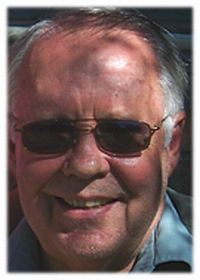Iets oor die skrywer

Iets oor die skrywer
Professor Christo van Rensburg
Navorsingsgenoot: Navorsingseenheid Tale en literatuur in die SA konteks. NWU, Potchefstroom-Kampus
Christo van Rensburg, een van Suid-Afrika se grootste taalkundiges, is in 2018 oorlede. Hy was dosent in Afrikaans aan die Universiteit van Pretoria toe hy begin belangstel het in die dialekte van Afrikaans. Hy het verskeie navorsingsondersoeke uitgevoer op soek na stukkies om in die legkaart van Afrikaans se geskiedenis te pas. Later het hy departementshoof geword van die departemente Afrikaans aan die Universiteit van die Vrystaat en die Universiteit van Pretoria, en toe direkteur van die Eenheid vir die Ontwikkeling van Taalvaardigheid. Sy artikels wat gedurende 2012 in hierdie webwerf opgeneem is, is een van die getuigskrifte vir sy uitgebreide werksaamhede in Afrikaans.
In die regterkantse inhoudsopgawe is die volgende temas deur Van Rensburg geskryf:
Die begin; Die Khoi; Na 1658; 1700-1800
Abstract
The contributions in this series on the history of Afrikaans relate to the story of Afrikaans from its earliest beginnings. Afrikaans started more than 4 centuries ago, when local Khoi-Khoin tribesmen came into contact with the first Dutch ships that threw anchor in Table Bay (the present Cape Town).
The first utterances, today clearly recognizable as Afrikaans, later developed into a fully-fledged language. In the course of time much happened to Afrikaans, many of which we will reflect on in this series.
A wide range of language influences were absorbed at the Cape, and since 1652 Dutch left a very explicit imprint on Afrikaans. Portuguese can be recognised from very early records, and sometime later, Malay, as well.
A very important period, between 1700 and 1800, will also be discussed. Khoi and the Afrikaans of the farmers in a large secluded region, in the inland, were able to influence each other at will. Much of present day Afrikaans can be linked to that period.
At the start of the nineteenth century, English was added to the language pool in South Africa. By then, many of the inhabitants of this inland region left their homesteads and settled deeper into South Africa, even in the remotest corners of this fairly big country, taking their Afrikaans with them
And after that? The struggles that awaited Afrikaans, centering on its elevation to a standard written form, and the development of its functions, will receive attention. As time went by, Afrikaans excelled in many ways in the first quarter of the nineteenth century. New challenges, ever so often, awaited this language with the humble beginnings, of which survival into future centuries is not the least.
Desember 2012
(Hersien: Oktober 2022)
© Catharina Loader 2001
